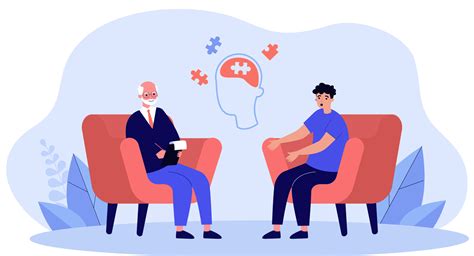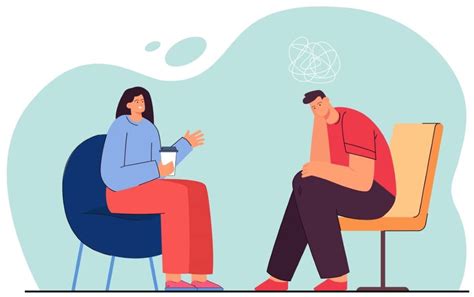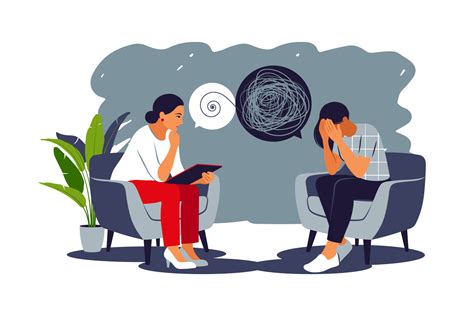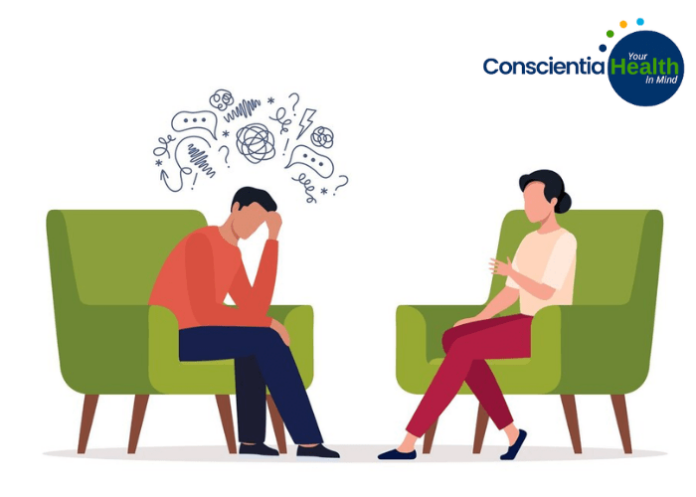Grief and loss are profound experiences that touch everyone at some point in life. Navigating these difficult emotions can feel overwhelming, but understanding the process is a crucial step toward healing. In this article, we explore the stages of grief, common emotional responses, and the importance of acknowledging and accepting these feelings. We also delve into the vital role that support networks—such as family, friends, therapists, and community groups—play in the healing journey. Additionally, we discuss self-care strategies, online resources, and helplines that can provide comfort and guidance. Ultimately, this guide aims to help you find hope and rebuild your life after experiencing loss.
Delve into this topic with tirfblog.com for a comprehensive understanding.
1. Understanding the Stages of Grief
Grief is a deeply personal and multifaceted process that unfolds in stages, often characterized by a sequence of emotions experienced after a significant loss. The Kübler-Ross model, a widely recognized framework, proposes five stages: denial, anger, bargaining, depression, and acceptance. While this model provides a helpful structure for understanding grief, it’s essential to remember that individuals experience these stages in unique ways. Some may cycle through stages, others may move back and forth, and still others may bypass certain stages altogether.
Denial, a protective mechanism, buffers individuals from the initial shock of loss. Anger often arises as a response to the perceived injustice of the situation, while bargaining reflects a desire to alter or mitigate the impact. Depression, a profound feeling of sadness, may follow, ultimately leading to acceptance, where individuals begin to reconcile with their loss. Recognizing these stages can provide understanding and validation during the grieving process.

2. Common Emotional Responses to Loss
Loss elicits a diverse array of emotional responses in individuals, varying significantly in both intensity and duration. Common reactions include shock, disbelief, sadness, anger, guilt, and anxiety. Immediately following the loss, individuals may experience shock and disbelief, resulting in a sense of numbness or detachment as they grapple with the reality of the situation. Sadness is a natural and enduring response, often manifested through crying, a profound feeling of emptiness, or sensations of hopelessness.
Anger may arise from feelings of injustice or frustration, sometimes directed at oneself, others, or even the person who has been lost. Guilt can manifest as regret over things left unsaid or undone, while anxiety might stem from fears about the future or the uncertainty of life without the loved one. These emotional responses are normal and part of the grieving process. Recognizing and acknowledging them is essential for moving forward and finding ways to cope with the pain of loss.

3. Importance of Acknowledging and Accepting Grief
Acknowledging and accepting grief is essential for healing after experiencing a loss. Many people try to suppress or deny their feelings, thinking that moving on quickly demonstrates strength. However, this can lead to unresolved emotions that resurface later, potentially affecting physical or mental health. Grief is a natural reaction to loss, and allowing yourself to feel and express these emotions is crucial for the healing process.
Acknowledging your grief validates your experience and helps you comprehend the depth of your loss. Acceptance doesn’t involve forgetting or diminishing the importance of what’s been lost. Instead, it means acknowledging the reality of the situation and allowing yourself to mourn. While this process can be painful, it is crucial for emotional healing.
Accepting grief unlocks the potential for seeking support from others. You can lean on loved ones, seek professional guidance through counseling, or find solace in support groups. This acceptance empowers you to take steps towards rebuilding your life, discovering new coping mechanisms, and ultimately finding hope and meaning in the face of loss. By embracing your grief, you honor your emotions and embark on a journey toward healing.

4. Role of Support Networks: Family and Friends
Support networks, particularly family and friends, are crucial during the grieving process. Navigating intense emotions alone can be overwhelming, and the presence of supportive loved ones provides comfort, understanding, and reassurance. Family members and close friends often act as the first line of support, offering a safe space to express feelings, share cherished memories, and simply be present during challenging times.
These relationships can foster a sense of normalcy during the grieving process, as loved ones may have encountered similar losses and can understand the emotional turmoil you’re experiencing. Moreover, they offer practical assistance, such as help with everyday tasks or managing responsibilities that might feel burdensome during this challenging time.
It is crucial to clearly communicate your needs to your support network. They may not always understand how to best help you. By letting them know when you want someone to listen, when you prefer to be alone, or when you need specific assistance, you strengthen these bonds and ensure you receive the support you need. Ultimately, leaning on family and friends during grief fosters connection, provides comfort, and can significantly ease the healing journey.
5. Professional Help: Therapists and Counselors
While family and friends provide crucial support, professional help from therapists and counselors can be invaluable in navigating the complexities of grief. Grief counseling offers a structured environment where individuals can explore their emotions with a trained professional who understands the psychological impacts of loss. Unlike personal support networks, therapists and counselors are equipped with tools and techniques to help you process grief in a healthy way.
Therapists can help identify and address any complications in the grieving process, such as prolonged or unresolved grief, which may manifest as chronic sadness, withdrawal, or an inability to move forward. Through various therapeutic approaches, such as cognitive-behavioral therapy (CBT) or mindfulness-based therapy, they can guide you in managing overwhelming emotions, developing coping strategies, and finding ways to adapt to life after loss.
Counseling sessions provide a confidential space where you can express feelings that might be difficult to share with others. This professional support can be particularly helpful for those who may feel isolated or struggle with more intense grief reactions. Seeking help from a therapist or counselor is not a sign of weakness but a proactive step towards healing, offering guidance and support during one of life’s most challenging experiences.
6. Community and Support Groups
Community and support groups provide an extra layer of comfort and understanding for those navigating the grieving process. These groups bring together individuals who have shared similar losses, creating a common space where participants can connect through their experiences. The shared understanding within these groups can be deeply validating, as members often find solace in knowing they are not alone in their grief.
Support groups serve as a platform for sharing experiences, exchanging coping mechanisms, and offering mutual encouragement. Facilitated by trained leaders, these groups can be structured or informal, adapting to the specific needs of their participants. They can be particularly valuable for individuals who feel their grief is not fully understood or who seek a wider support network beyond their immediate circle of family and friends.
Connecting with a community or support group can offer a sense of purpose. Helping others navigate their grief can be a powerful way to work through your own emotions. Within these groups, you’ll discover empathy, connection, and hope—essential elements for healing after a loss.
7. Self-Care Strategies for Coping with Grief
Taking care of yourself is essential for coping with grief and maintaining emotional well-being. Prioritizing self-care can lessen the impact of grief and help you become more resilient as you heal. Simple activities like sticking to a regular sleep schedule, eating healthy foods, and engaging in gentle exercise can have a big impact on your mood and energy levels.
Mindfulness practices, like meditation or deep-breathing exercises, can effectively manage stress and foster a sense of calm. Journaling your thoughts and feelings can also be therapeutic, providing an outlet for processing and releasing emotions. Setting aside time for activities that bring you joy or comfort, such as reading, spending time in nature, or pursuing a hobby, can offer moments of respite from grief.
During this time, it’s crucial to extend patience and compassion to yourself. Rest is essential, and seeking moments of peace can facilitate healing. These practices will help you navigate the emotional highs and lows of grief with greater ease.
8. Utilizing Online Resources and Helplines
Online resources and helplines offer invaluable support during the grieving process, providing readily available and immediate assistance. Websites dedicated to grief and loss offer a wealth of information, including articles, forums, and virtual support groups. These platforms allow individuals to share their experiences, find helpful information, and connect with others who understand. They also provide expert advice on coping strategies, personal stories, and interactive tools to help manage grief.
Helplines offer crucial, confidential, and immediate support from trained professionals. Accessible around the clock, these services prove especially valuable when emotions are overwhelming or when you need someone to talk to beyond usual support hours. Helplines can connect you with counselors specializing in grief support, providing a compassionate listening ear and practical advice.
Furthermore, online therapy platforms have gained significant popularity, providing individuals with convenient access to counseling from the comfort of their own homes. These resources can serve as a valuable complement to traditional support systems, offering a flexible option for individuals coping with grief. This accessibility ensures that help is readily available whenever and wherever it is needed.
9. Finding Hope and Rebuilding After Loss
The journey of finding hope and rebuilding after a loss is a gradual process of healing and adapting. As you navigate your grief, it’s important to remember that while the pain of loss may never fully vanish, it can become more bearable with time. A key element in rebuilding is setting small, achievable goals that can help restore a sense of normalcy and purpose to daily life. These goals might involve reestablishing routines, pursuing personal interests, or engaging in activities that bring joy and fulfillment.
Seeking out new avenues for growth and connection can be a source of hope. This may involve joining new social groups, engaging in volunteer work, or discovering hobbies that bring a sense of accomplishment and community. By embracing positive change and finding meaning in life’s new chapters, you can honor the memory of your loved one in a powerful way.
Building a network of supportive individuals, along with ongoing use of resources like therapy and support groups, can greatly assist in this journey. By prioritizing self-care, seeking support, and gradually embracing new experiences, hope can be found and a fulfilling life can be rebuilt after loss.
Grieving is a deeply personal journey, but it is one that can be navigated with support and self-care. By understanding the stages of grief, embracing emotional responses, and utilizing resources such as support networks, professional help, and online tools, you can find pathways to healing. Remember that acknowledging and accepting grief, along with engaging in self-care and seeking community support, are crucial steps. With time and patience, hope and renewal can emerge, guiding you toward a fulfilling future.
tirfblog.com

